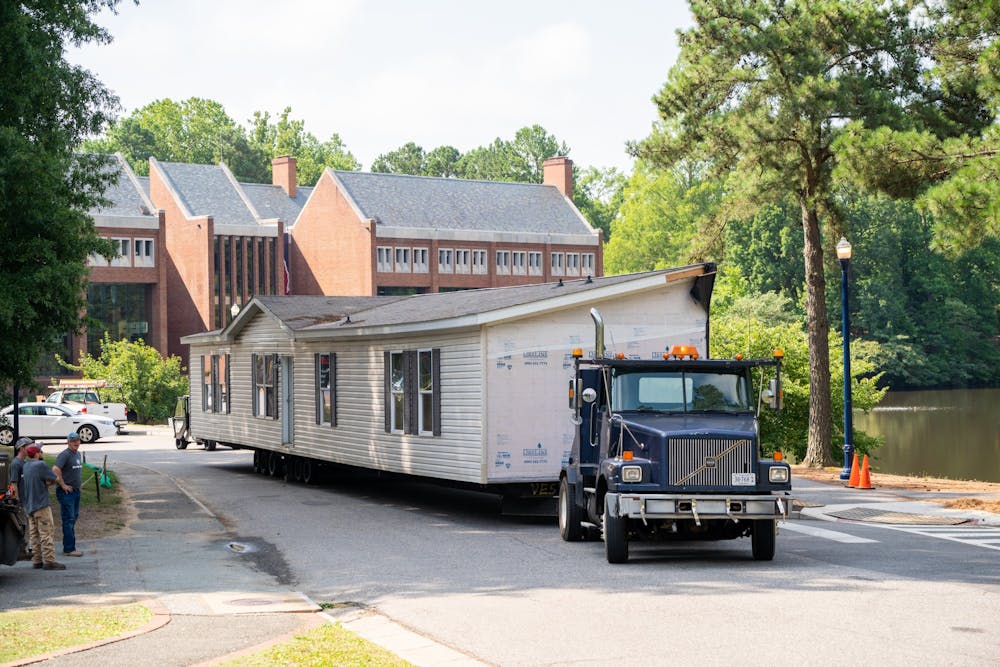The University of Richmond donated on July 27 five doublewide modular units to the Family Crisis Support Services, an organization that provides emergency shelter and transitional residential housing to survivors of domestic violence, sexual assault and victims of homelessness, according to a press release from UR’s Office of Media and Public Relations.
“The University had conversations with several different non-profit organizations about this unique opportunity to donate these modular units to people in need,” Director of Media and Public Relations Sunni Brown wrote in an email to The Collegian.
The units were used for the isolation and quarantine of residential students during the 2020-2021 academic year.
UR no longer needs all of its units for quarantine space because of the rising vaccination rates among students, according to the press release. Currently, 92.8% of students and 91.2% of faculty who have reported their vaccination status are fully vaccinated, according to UR’s COVID-19 dashboard.
FCSS, which is based in Norton, Virginia, had ample land available that could accommodate the modular units, so it was determined to be the best fit for the modular units, Brown wrote.
The current FCSS building has significant structural and foundational issues, Executive Director of FCSS Marybeth Matthew-Adkins wrote in an email to The Collegian.
“We have battled mold, water in the basement, a variety of plumbing and general structural decline issues during the past few years,” Matthew-Adkins wrote. “As one problem was addressed, more seemed to appear.”
An assessment by a local engineering firm led Matthew-Adkins to believe that saving the structures in place at FCSS would not be financially possible, she wrote.
The donation of units was “an absolute blessing in a season full of barriers,” she said. However, FCSS will need help setting up and furnishing the donated units, she wrote.
“We are currently pursuing funding for associated setup costs such as foundations, HVAC units, water, electrical and septic connections, building permits, and a playground for the children on the site,” she wrote.
UR will keep its remaining 20 singular modular units available for quarantine and isolation during the fall semester, Brown wrote.
Contact news writer Abdulghaffah Abiru at ghaffah.abiru@richmond.edu.
Enjoy what you're reading?
Signup for our newsletter
Support independent student media
You can make a tax-deductible donation by clicking the button below, which takes you to our secure PayPal account. The page is set up to receive contributions in whatever amount you designate. We look forward to using the money we raise to further our mission of providing honest and accurate information to students, faculty, staff, alumni and others in the general public.
Donate Now



